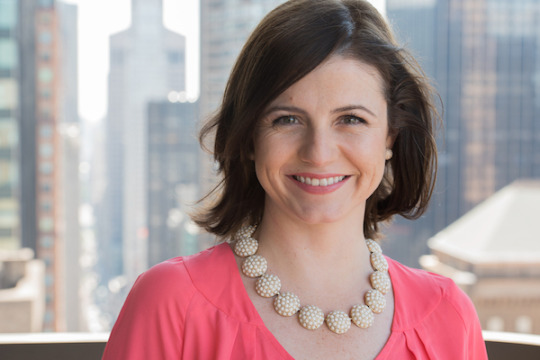
Allyson Downey is an entrepreneur, MBA, writer, and parent. She is also the author of the book Here’s the Plan: Your Practical, Tactical Guide to Advancing Your Career During Pregnancy and Parenthood, the pregnancy and parenting guide to your professional life. Consider this like your work/life bible for expecting and pre-expecting parents.
What inspired you to write this book and why did you think it was important?
The inspiration was two-fold. First, I was running a start-up that was focused on bringing trusted advice to new and expecting parents, and a friend who worked in book publishing approached me about writing a book. weeSpring helps parents find the best baby and kids’ gear by making it easy to find out their friends’ must-haves and don’t-buys, but I knew immediately that I didn’t want to write a book about baby gear. (Honestly, I wouldn’t want to read that book, let alone write it.)
I thought about what was missing in the bookstores—what was book I would have wanted when I was having a baby? I had this terrible experience with pregnancy discrimination and was sidelined out of my job, and I remembered scouring the internet for advice on what to do. I had a zillion questions back then: how and when should I discuss my pregnancy with clients? How do you hire a nanny? What about interviewing while pregnant? What do you do if you feel you’re being discriminated against?
As part of my research for the book, I interviewed almost 75 successful women about how they steered their careers through pregnancy and parenthood, and I compiled all of their advice together in a book that takes you from positive pregnancy test all the way to juggling a pre-schooler’s schedule with your own.
There is a lot of news every day about women leaving the workforce and creating more gender diverse workplaces. Do you think there is real change happening or just talk?
I think it’s both: we’re seeing tremendous strides, but I often wonder about what the culture is in these environments that have enacted really progressive policies. I firmly believe that policies get you nowhere unless there’s concerted organization-wide effort to drive inclusion.
When I was in business school, I took a class that dove into “green-washing”: when companies issue press releases that trumpet their commitment to the environment through some initiative or another, yet it’s just a surface tactic, and behind the scenes, they’re engaging in the same-old-same-old. Like companies that say they’re offsetting the carbon footprint of their employees’ air travel, but they don’t count the executives’ private jet usage as part of that.
I worry that there’s a lot of family-washing going on: companies crowing about their new and generous policies, yet if you were to look closely at their metrics, you’d find that they’ve never promoted a woman while she was pregnant.
It’s a tricky subject to speak about women and parenting and work, but do you think this is an issue that is gender specific and how does that impact the choices that women specifically have to make in their lives?
Yes. Yes yes yes yes yes.
I love that we’re seeing companies talk about parental leave—and in New York State and California and the other states that have enacted changes, the term “parental leave” is the norm. But I think most people still internalize leave after the birth of a child as maternity leave.
It’s doubly destructive for women: first, they’re essentially walking around their workplaces wearing a fluorescent sticker that reads “may take three months off in the near future.” And that’s not a sticker that’s applied to men, even though under FMLA, they’re equally entitled to take three months off. Even the most egalitarian, feminist managers fall prey to unconscious bias.
And meanwhile, while dads are in the office for those three months getting more experienced at their jobs, moms are spending three months becoming experts in soothing a baby and dealing with the administrivia of family life. That expertise is a burden: when they go back to work, they’re simply better at that stuff, and they wind up carrying that mantle. This happens even in families where dads are eager and enthusiastic co-parents; even with the best intentions, these habits form.
I hate to be a downer, but I don’t think we’ll see much change until we see dads taking the same amount of leave as moms.
What’s your take on “having it all” and “leaning in”?
First, let me say that I have tremendous admiration for both Anne-Marie Slaughter and Sheryl Sandberg. I agree with both of them: our current system is terrible and doesn’t set women up for success, and women should take responsibility for their own destiny and not give up, despite how lacking the system is.
One of my favorite quotes from Here’s the Plan is “Some days I am a great doctor. Some days I am a great mom. They are never the same day.” That embodies so clearly for me the struggle that women face—yes, having it all feels impossible, but only if you aren’t willing to change your framework on what “it all” means. I hate talking about work life balance, because it implies to me a tightrope, and you’re teetering along while trying to stay in perfect balance all the time. I don’t think it’s possible to achieve daily balance—but I do believe that if you zoom out and try and achieve balance on a weekly or even monthly scale, it’s a lot more manageable. So some weeks, you’re great at your job, and maybe you miss bedtime more than you make it. And some weeks, you duck out of the office early to pick your kids up from pre-school and go to the zoo on impulse. You can still be really, really good at both things (a great employee and a great mother)—even if you may not feel like you can get an A+ on both on the same day.